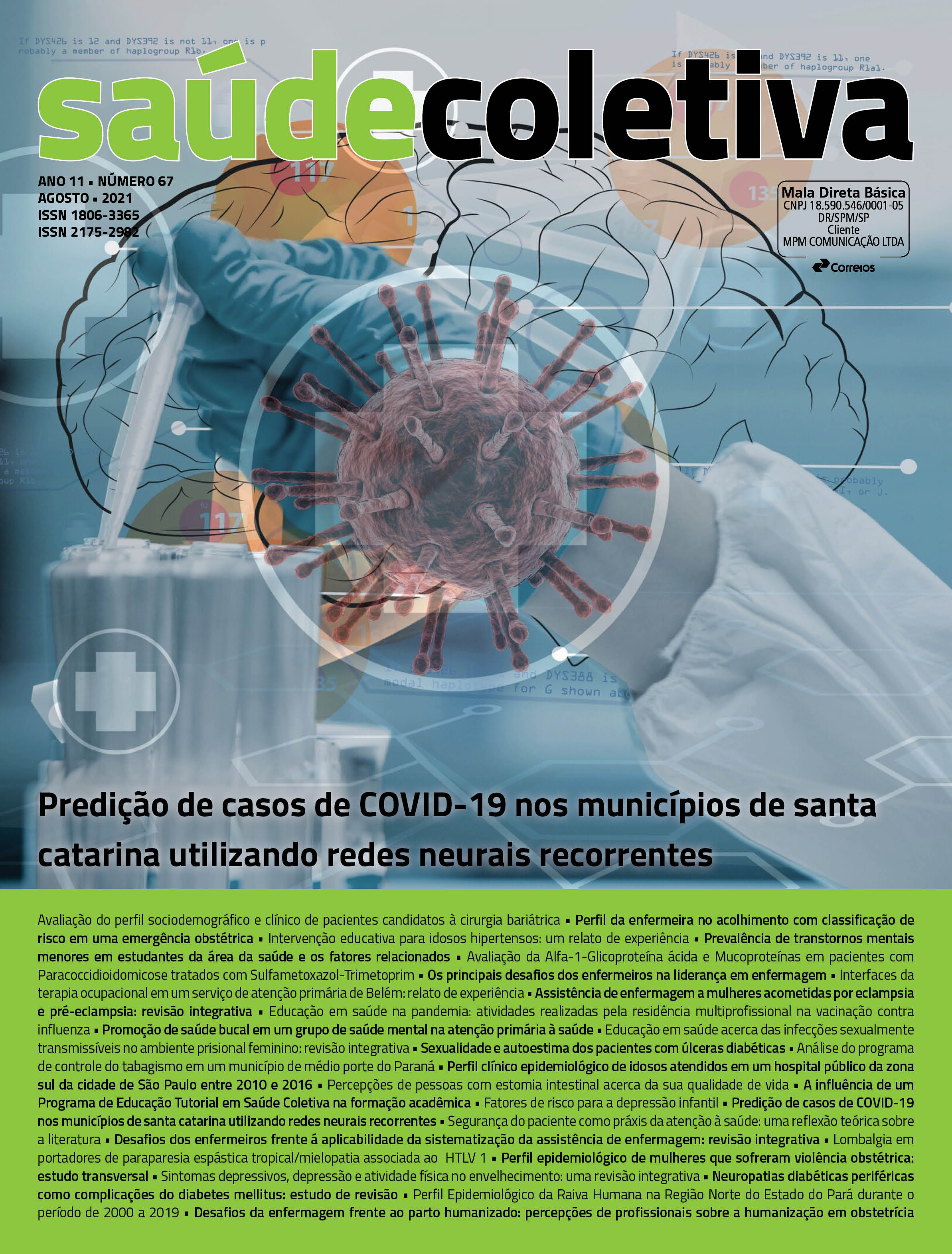Forecasting COVID-19 cases in santa catarina cities with recurrent neural networks
DOI:
https://doi.org/10.36489/saudecoletiva.2021v11i67p6851-6862Keywords:
Artificial Intelligence, Machine Learning, Coronavirus Infections, Public Health Surveillance, EpidemiologyAbstract
Objective: evaluate the forecasting of COVID-19 daily incidence in the cities of Santa Catarina, through a machine learning algorithm, within a time horizon of 14 days. Method: a recurrent neural network was applied to model a regression problem with a predictive purpose, using a retrospective longitudinal epidemiological study of COVID-19 cases in the analyzed cities. Results: the data model obtained with a machine learning algorithm presented an RMSE of 20.74, less than the baseline established through a persistence model. Conclusion: from the result achieved by the data model, it follows that the Artificial Intelligence tools used in the research are important instruments to face the COVID-19 pandemic, providing the management improvement of health resources, which need a suitable allocation for an adequate sanitary response to the disease progress.







